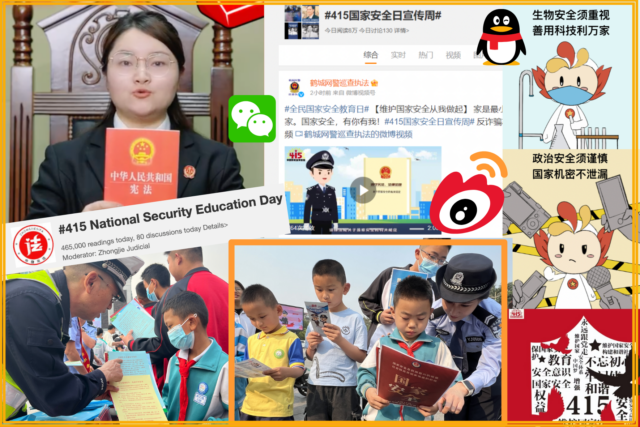Dictatorships and other authoritarian states prize security of the regime above all. China no less, given that its spending on internal security is more than its defence budget. The People’s Liberation Army is the instrument of the Communist Party of China, a situation that flows from the late Chairman Mao’s phrase that “political power flows from the barrel of a gun”. So far from being the army of the nation, the PLA is actually the army of the party!
The obsession with regime security has some odd manifestations, such as the National Security Education Day, which kicked off on Sunday April 15. This is the eighth edition of the event driven by the Ministries of Education and Public Security, and the purpose of National Security Education Day is to “implement the overall national security concept, enhance national security awareness and literacy of the whole people and consolidate the social foundation of the new development pattern with a new security pattern.”
“In the early years it was thought this event would be oriented towards threats from outside,” notes Suyash Desai, China scholar at the National Sun Yat-Sen University in Taiwan, “But as limited documents have show, it’s more inward looking with internal stability as the biggest national security concern under Xi Jinping. Of course China claims that internal stability is impacted by outside forces.”
China’s Twitter equivalent Weibo, is flooded with hashtags, cartoons, and posters seeking to educate and build awareness among the population about espionage and how to avoid getting caught in dangerous foreign machinations.
A lot of this is online as that is the easiest way to reach large numbers of people. The focus is on teachers and students and as screenshots show, there are animated posters and short animated videos educating people on how to secure their electronic devices including laptops and phones from hacking.
Communist Party cadres take this event extremely seriously, putting up posters in the real world urging the general public to stay away from “unknown foreigners” so as to avoid being compromised. At all times they are urged to be on their guard and abide by the laws of the country.





